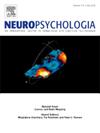Decoding of lexical items and grammatical features in EEG: A cross-linguistic study
IF 2
3区 心理学
Q3 BEHAVIORAL SCIENCES
引用次数: 0
Abstract
Diverse evidence supports the theory that bilingual language users have language-invariant representations of concepts and grammatical forms such as argument structure. Here we extend that work to test the representation of morphosyntactic features and lexical concepts in typologically different languages. Specifically, we deploy machine learning techniques with EEG data collected from eighteen Korean-English bilinguals while they read singular and plural nouns and present and past tense verbs in English and Korean. Whereas event-related potentials (ERPs) analyses show limited sensitivity to discriminate lexical, number, and tense information, neural decoding revealed robust within-language classification of lexical and morphosyntactic information in both languages. In contrast, between-languages decoding was possible only for number information; decoding of lexical items and tense did not generalize between the two languages, even when accounting for temporal differences. These results indicate stable within-language EEG representations for lexical items and morphosyntactic features but suggest that only the number feature show evidence for shared EEG response patterns between the two languages studied.
脑电词汇项目解码与语法特征的跨语言研究
多种证据支持这样一种理论,即双语使用者对概念和语法形式(如论点结构)具有语言不变的表征。在这里,我们扩展了这项工作,以测试形态句法特征和词汇概念在不同类型语言中的表示。具体来说,我们部署了机器学习技术,收集了18名韩英双语者在阅读英语和韩语的单数和复数名词、现在时和过去时动词时的脑电图数据。尽管事件相关电位(ERPs)分析显示对区分词汇、数字和时态信息的敏感性有限,但神经解码揭示了两种语言中词汇和形态句法信息的强大语言内分类。相比之下,语言间的解码只能用于数字信息;即使考虑到时间差异,两种语言对词汇项目和时态的解码也没有普遍化。这些结果表明,词汇项和形态句法特征在语言内的脑电图表征是稳定的,但只有数字特征在两种语言之间显示出共同的脑电图反应模式。
本文章由计算机程序翻译,如有差异,请以英文原文为准。
求助全文
约1分钟内获得全文
求助全文
来源期刊

Neuropsychologia
医学-行为科学
CiteScore
5.10
自引率
3.80%
发文量
228
审稿时长
4 months
期刊介绍:
Neuropsychologia is an international interdisciplinary journal devoted to experimental and theoretical contributions that advance understanding of human cognition and behavior from a neuroscience perspective. The journal will consider for publication studies that link brain function with cognitive processes, including attention and awareness, action and motor control, executive functions and cognitive control, memory, language, and emotion and social cognition.
 求助内容:
求助内容: 应助结果提醒方式:
应助结果提醒方式:


